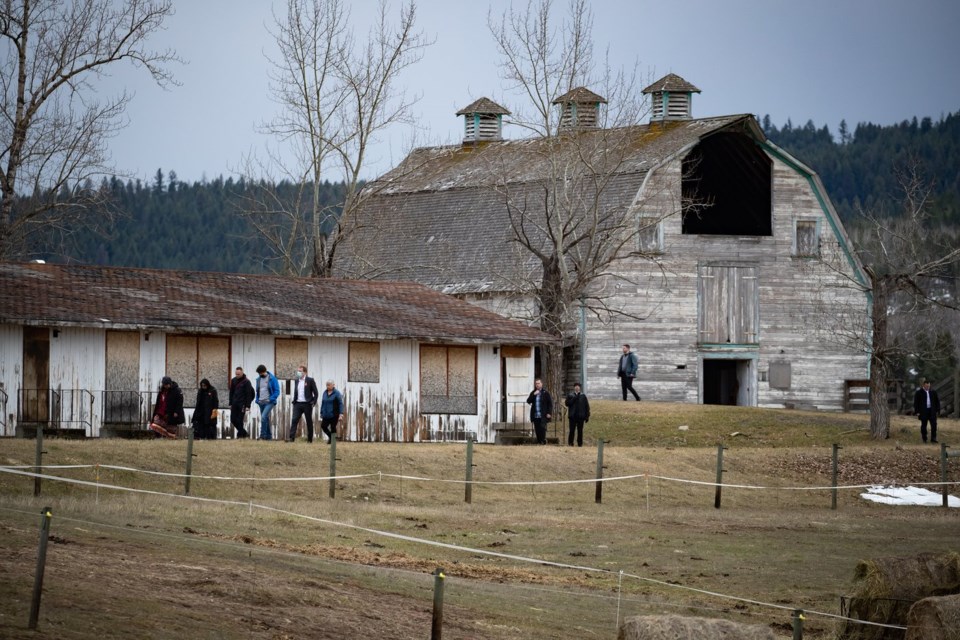WILLIAMS LAKE, B.C. — An Oscar-nominated documentary about deaths, abuse and missing children at a former British Columbia residential school should be shown in schools across Canada, says a First Nations leader.
The film "Sugarcane," directed by Secwépemc artist Julian Brave NoiseCat from Williams Lake in the B.C. Interior, and Toronto journalist Emily Kassie, received an Academy Award nomination this week for best documentary feature.
Williams Lake First Nation Chief Willie Sellars, whose nation encompasses the Sugar Cane Reserve and the former St. Joseph's Mission Residential school said the nomination stirred conflicting emotions of joy, trauma, and validation among members of his community.
"We are really so proud," Sellars said. "We really can't believe it. The journey of 'Sugarcane' has been an emotional one on many fronts. The film has become so much bigger than all of us. It's helping us tell the story and really be a part of the healing journey we are on."
The documentary is a haunting account of deaths, suicides, abuse and missing children at the Catholic-run former residential school where Indigenous children from more than 40 area communities were taken. It operated from 1891 to 1981.
Sellars said the film had the power to educate and heal, and the more people who viewed it, the greater the opportunity to bring understanding and change.
"I would love to see this film part of the curriculum in every school in this country," he said. "I would love to just think that this film had a big part in the healing journey that we are on as a country and as Indigenous Peoples."
NoiseCat appears in the film with his father Ed Archie NoiseCat, who was born at the institution.
It explores long-standing allegations that priests who fathered children with school residents sent the infants to an incinerator.
Sellars, whose father William Sellars Sr. attended St. Joseph's as a boy, said he was hopeful the film would help with the healing process that individuals and the community as a whole are still undergoing.
"He is one of those survivors who never talks about his time at St. Joseph's Mission," said Chief Sellars. "The only stories I've ever heard him tell were about the hockey arena and learning how to skate."
Sellars said the school's outdoor ice rink served as an outlet for the students, where many spent more time working as farm labourers than being students.
Sellars, who has seen the documentary, said it puts the issue of Canada's residential school history and experience on the world stage.
More than 150,000 First Nations, Métis and Inuit children attended church-run, government-funded residential schools between the 1870s and 1997.
Canada's National Centre for Truth and Reconciliation estimates about 4,100 children died at residential schools across the country based on death records but has said the actual total is likely much higher.
In May 2021, the Tk'emlups te Secwepemc Nation in the Kamloops, B.C. area issued a report about the potential discovery of more than 215 possible grave sites at the site of the former Kamloops Indian Residential School, which were identified through the use of ground-penetrating radar.
Sellars said ground-penetrating radar had detected more than 150 "anomalies" at the former St. Joseph's school site but the only way the nation can confirm if the anomalies are graves is through excavation.
"But I don't know if we'll get to that place," he said. "We continue to investigate the history and legacy of that school. It's scary to think about all the monstrous things that happened at that school."
The 97th Academy Awards will take place March 2 in Los Angeles.
This report by The Canadian Press was first published Jan. 25, 2024.
Dirk Meissner, The Canadian Press



